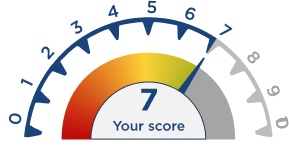What Is a Recurring Deposit (RD)?
Recurring deposit refers to a savings plan where a fixed sum of money is deposited into an account on a monthly basis for a specific period. At the end of the tenure, the depositor receives the principal amount along with the collected interest. The interest rate on recurring deposits is pre-determined and generally higher than that offered on savings accounts. It is suitable for salaried individuals and those with a steady income source who want to save regularly. A recurring deposit can be a good way for new investors to familiarize themselves with financial products before opting for products with higher returns and deposits, such as life insurance policies and mutual funds.
How Does a Recurring Deposit (RD) Account Work?
An RD account works on the principle of systematic savings.
The account holder selects a fixed monthly deposit amount and a tenure for the recurring deposit account.
The bank, financial institution, or even a Post Office Recurring Deposit scheme, applies a fixed rate of interest in RD for the chosen tenure.
The depositor makes monthly payments into the account.
Interest is compounded quarterly or annually, depending on the bank’s policy.
At the end of the maturity period, the total amount (principal + interest) is credited to the depositor's account.
The amount earned can also be estimated using tools such as an RD calculator. It helps in calculating RD maturity returns based on the deposit amount, tenure, and interest rate.
Key Features of Recurring Deposits
Assured Returns
A recurring deposit account offers guaranteed returns as the recurring account interest rate remains fixed for the entire tenure. It ensures predictable and secure savings.
Higher Interest Rate
The interest rate on recurring deposits is typically higher than that offered on regular savings accounts. It varies depending on the bank, tenure, and deposit amount.
Flexible Investment Amount
RDs allow depositors to choose an affordable monthly payment based on their financial capacity. This makes it suitable for all income groups.
Flexible Tenure
The tenure for an RD account typically ranges from 6 months to 10 years, offering flexibility to depositors for aligning their savings with their financial goals.
Overdraft Facility
Some banks allow accountholders to avail of an overdraft facility against their recurring deposit. This provides liquidity in case of financial emergencies.
Lock-In Period
RD accounts usually have a short lock-in period. Premature withdrawals are allowed, but they may attract a penalty or a lower interest rate.
Some of the features of an RD account are common in likeness to those of life insurance product, especially when it comes to aspects such as flexibility and assured benefits. It is therefore no surprise that life insurance investments are often advised to individuals in their early stages of investing.
Benefits of Having an RD Account
An RD is ideal for people who want to cultivate a habit of saving regularly while also earning returns:
Systematic Savings: An RD inculcates financial discipline by encouraging regular savings.
Higher Returns: The recurring deposit account offers better returns than savings accounts.
Low Risk: It is a safe and risk-free investment option.
Financial Flexibility: Suitable for short-term and long-term savings goals.
Loan Facility: RDs can be used as collateral for loans, providing additional financial security.
Assured Maturity: At the end of the tenure, you receive the accumulated savings along with interest.
Types of Recurring Deposits in India
Recurring Deposit for Senior Citizens
Senior citizens can open an RD account with a higher rate of interest in RD, as compared to regular depositors. The interest rates can be 0.5% to 1% higher, depending on the bank.
Recurring Deposit for NRI/NRE
NRIs can invest in recurring deposits through NRE or NRO accounts. These accounts allow NRIs to earn interest in Indian currency while saving consistently.
NRI Recurring Deposits offer a disciplined way to build savings over time.
Minor Recurring Deposit Account
Parents or guardians can open an RD account for minors to secure their future and cultivate a habit of saving from a young age.
Things to Consider Before Opening an RD Account
Interest Rate
The recurring deposit account interest rate varies across banks and financial institutions. Compare rates before opening an RD account to maximise returns.
Investment Amount
Decide a monthly deposit amount that suits your budget and financial goals. Many banks allow deposits starting from as low as Rs. 100.
Investment Tenure
Choose a tenure aligning with your savings objectives, whether short-term or long-term.
Tax on Interest Income**
The interest from recurring deposits is taxable under the Income Tax Act. TDS (Tax Deducted at Source) is applicable if the interest exceeds Rs. 40,000 in a financial year or Rs. 50,000 in a financial year (for senior citizens).
Eligibility Criteria for Opening an RD Account
To open a recurring deposit account in India, individuals must meet the following eligibility criteria:
Indian residents, including minors (through guardians).
Senior citizens.
NRIs with NRE/NRO accounts.
Trusts, partnerships, and businesses (in some cases).
How to Open a Recurring Deposit Account
Visit your bank’s official website or mobile banking app.
Log in to your account and select the RD option.
Choose the deposit amount and tenure.
Confirm the details and complete the process.
Visit the nearest bank branch.
Fill out the RD account opening form.
Submit KYC documents (identity proof, address proof, and photographs).
Deposit the initial payment amount.
Who Can Open an RD Account?
Anyone who fulfils the eligibility criteria can open an RD account, including:
Documents Required To Open a Recurring Deposit Account
Identity proof (Aadhaar card, PAN card, voter ID, passport).
Address proof (utility bills, passport, Aadhaar card).
Passport-sized photographs.
Bank account details for monthly deposits.
For NRIs: NRE/NRO account details and valid passport.
How to Close a Recurring Deposit Account
Offline
Visit your bank branch with valid ID proof.
Submit an RD closure form.
The amount will be transferred to your account or paid in cash.
Net Banking
Log in to your net banking account.
Select the RD account and choose the closure option.
Confirm the request to close the account.
Mobile Banking
Access the mobile banking app.
Navigate to the RD account section.
Select the closure option and authenticate the request.
A recurring deposit account is a safe and systematic savings option for individuals across all income groups. With flexible deposit amounts, tenures, and attractive interest rates, RDs offer a great way to achieve short-term and long-term financial goals. Whether you are a salaried individual, senior citizen, or an NRI, an RD account ensures assured returns while instilling financial discipline. By understanding the meaning of a recurring deposit and considering factors such as interest rates and taxation, you can make the most out of this investment avenue. In addition to these savings instruments, make sure to also add the right life insurance policy to your financial portfolio.**
FAQs
What is RD and how does it work?
RD stands for Recurring Deposit, meaning an account where you deposit a fixed amount monthly for a specific tenure and earn interest at a fixed rate.
Which is better? RD or FD?
It depends on your needs. RDs suit regular savers, while FDs are ideal for lump sum investments.
Is interest earned on recurring deposits taxable?**
Yes, the recurring deposit account interest is taxable as per your income tax slab. TDS is applicable if interest exceeds Rs. 40,000 annually.
What is the minimum tenure required for holding a Recurring Deposit account?
The minimum tenure for RDs is generally 6 months, and the maximum is up to 10 years.
Who is eligible for a Recurring Deposit (RD)?
Indian residents, NRIs, senior citizens, and minors (via guardians) are eligible to open an RD account.
Can I withdraw my Recurring Deposit before the end of the term?
Yes, premature withdrawals are allowed but may incur a penalty or reduced interest.
What if I miss my RD payment?
Missing a payment may attract penalties or affect the maturity amount.
How is RD calculated?
RD interest is calculated using a compound interest formula. You can use an RD calculator to estimate the returns based on the deposit amount, tenure, and interest rate.
** Tax exemptions are as per applicable tax laws from time to time.



























